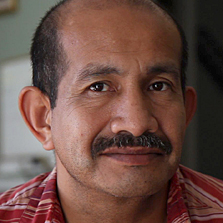ACLU FOIA Litigation Reveals ICE Actively Considering Proposals to Expand Immigration Detention Nationwide
NEW YORK – New documents obtained by the ACLU reveal that Immigration and Customs Enforcement (ICE) is actively considering proposals to expand its immigration detention capacity in at least six states across the country, including in California, Kansas, Nevada, New Mexico, Texas, and Washington state. The records, obtained as a result of a Freedom of Information Act (FOIA) lawsuit filed by the ACLU in September 2024, disclose that private prison corporations, as well as other corporate entities that provide services to build temporary facilities, monitor compliance, and staff facilities submitted proposals for expanded immigration detention in response to ICE’s contract requests. The discovery comes just weeks after the ACLU received its first tranche of FOIA documents revealing that ICE is considering expanding detention in three different facilities in New Jersey.
“You cannot have mass deportations without a significant expansion of ICE detention capacity in states across the country and that’s exactly what the incoming Trump administration is preparing to do,” said Eunice Cho, senior staff attorney at the ACLU’s National Prison Project. “Rather than permanently shutting down abusive detention facilities, the Biden administration is paving the way for President-elect Donald Trump to make good on his cruel and inhumane mass deportation proposals.”
The FOIA documents reveal that GEO Group, Inc., CoreCivic, and the Management & Training Corporation (MTC) submitted contract proposals to Requests for Information (RFI) to expand detention capacity and facilities, several of which have a lengthy history of abusive conditions. The proposals for expanded immigration detention facilities include:
Midwest Regional Reception Center in Leavenworth, KS – formerly known as Leavenworth Detention Center – which has a track record of abusive conditions, which led the federal government to end its contract with the facility in 2021.
South Texas Family Residential Center in Dilley, TX – a facility where children as young as 19 months have died as a result poor medical care.
Nevada Southern Detention Center in Pahrump, NV – which has been subject to a federal invesitgation for medical negligence, racial discrimination, and verbal abuse of detained people.
Cibola County Correctional Center in Milan, NM — which has been the site of numerous deaths in recent years, with incidents of neglect, abuse, and lack of medical care.
Torrance County Detention Facility in Estancia, NM – which Department of Homeland Security’s Office of Inspector General cited in 2022 due to poor conditions.
California City Correctional Center in California City, CA – which was previously used as a California Department of Corrections prison until March 2024.
ICE also withheld a number of documents in its FOIA disclosure, obscuring the names of the specific facilities. However, the documents produced indicate that the following detention facilities are likely under consideration by ICE:
Lea County Correctional Facility in Hobbs, NM (Proposal by GEO Group, Inc. for the El Paso Field Office)
Northwest ICE Processing Center in Tacoma, WA (Proposal by GEO Group, Inc. for the Seattle Field Office)
Golden State Annex in McFarland, CA (Proposal by GEO Group, Inc. for the San Francisco Field Office)
Mesa Verde Detention Center in Bakersfield, CA (Proposal by GEO Group, Inc. for the San Francisco Field Office)
MTC facility in South Texas, which may include the Willacy County Jail in Raymondville, TX (Proposal by MTC for the Harlingen Field Office)
GEO Group, Inc. facility in IL, IN, WI, MI, KT, or KS (Proposal by GEO Group, Inc. for Chicago Field Office)
GEO Group, Inc. facility in South Texas, which may include the Brooks County Detention Center, Falfurrias, TX; Coastal Bend Detention Center, Robstown, TX; or the East Hidalgo Detention Center in LaVilla, TX (Proposal by GEO Group, Inc. For the Harlingen Field Office)
Other corporate entities, including Kastel Enterprises, LLC., and Active Deployment Systems, which provide services to build temporary facilities, and Sabot Consulting, which provides compliance monitoring and detention staffing services, also submitted responses to ICE’s request.
As the ACLU has previously documented, the federal government’s immigration detention system overwhelmingly relies on private prison corporations. Private prison corporations, like the GEO Group, CoreCivic, LaSalle Corrections, and the Management & Training Corporation have pocketed billions from ICE detention contracts over the past two decades.
The FOIA records are available here: https://www.aclu.org/documents/multi-state-detention-facility-support-foia-documents-request-for-information


